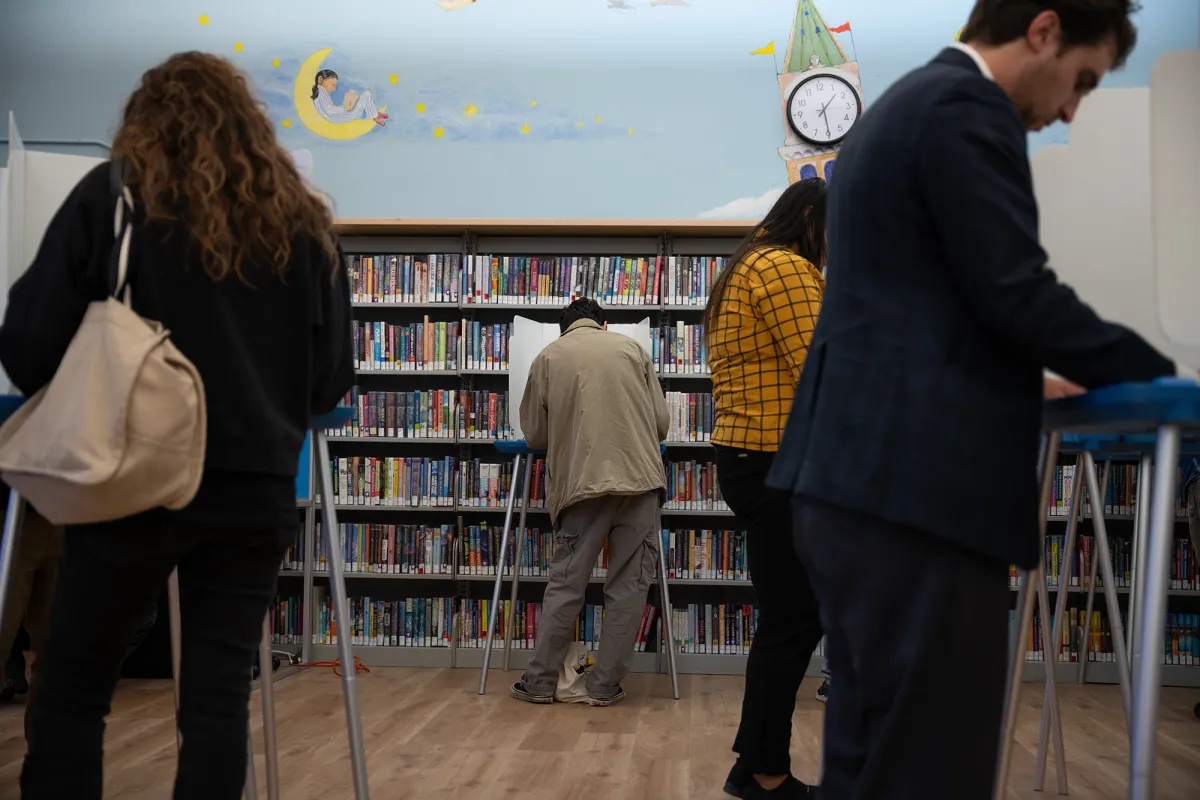This story was originally published by CalMatters. Sign up for their newsletters.
California voters are deciding the fate of Gov. Gavin Newsom’s Proposition 50, which poses one simple question: to gerrymander or not to gerrymander?
Tuesday’s ballot measure asks voters to approve Newsom’s plan to temporarily sideline California’s independent redistricting commission and instead adopt gerrymandered districts drawn to give Democrats an edge in the national race to control the U.S. House of Representatives. Polls close at 8 p.m.
Newsom and his allies say Prop. 50 offsets gerrymandering efforts in Republican-controlled states such as Texas, Missouri and North Carolina that are designed to help the GOP retain control of Congress and pass more of President Donald Trump’s agenda in his last two years.
Opponents of Prop. 50 argue that the measure amounts to a power grab by Newsom and Sacramento’s political elite, and that politicians shouldn’t be able to draw their own district lines.
More than 5.9 million ballots — about 26% of those who received mail-in ballots — have already been returned, according to Political Data Inc., which tracks ballots in each county. Final polling shows strong support for Prop. 50, with 56% of likely voters telling the Public Policy Institute of California they’re in favor, and 60% of likely voters supporting in a Berkeley Institute of Governmental Studies survey.
Under the new maps, some disparate parts of the state get lumped together, such as a wacky-shaped district in the North State that combines rural and conservative Modoc County with the ultra-liberal Bay Area in Marin County. The city of Huntington Beach, a conservative stronghold in Orange County that banned the LGBTQ pride flag on city property, would be represented by a progressive, gay Peruvian immigrant, the top Democrat on the U.S. House’s primary investigative committee.
And a game of musical chairs in San Diego and Riverside counties could pit longtime Republican members of Congress against one another as the number of winnable GOP seats shrinks. Several salivating Democrats have already declared they will run in the newly formed, Democratic-friendly 48th Congressional District, which Republican Rep. Darrell Issa currently represents.
In the weeks leading up to Election Day, voters in the typically low-turnout Central Valley proved that even though many Californians hadn’t heard of Prop. 50 by name, the redistricting issue was familiar enough that they could quickly form an opinion after learning about the measure.
The Yes side blanketed the airwaves with $55.4 million in ads featuring high-profile Democrats and had a significant fundraising advantage — more than double their opponents. The No campaign spent just $8.9 million in broadcast and video advertising, according to the ad tracking AdImpact.
Voters in five California counties — Fresno, Kern, Los Angeles, Orange and Riverside — could encounter federal election monitors from the Department of Justice at their polling places. Newsom also fanned fears within the Latino community that immigration agents could appear at polling sites. An ICE spokesperson told CalMatters that the agency was not planning “targeted enforcement actions” at polling sites.

